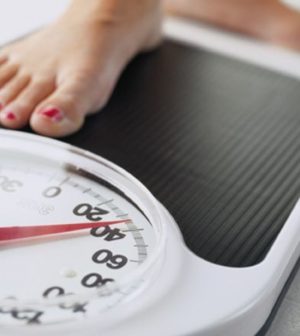- The Best Time of Day to Drink Bone Broth to Maximize Health Benefits
- 8 Ways to Increase Dopamine Naturally
- 7 Best Breads for Maintaining Stable Blood Sugar
- Gelatin vs. Collagen: Which is Best for Skin, Nails, and Joints?
- The Long-Term Effects of Daily Turmeric Supplements on Liver Health
- Could Your Grocery Store Meat Be Causing Recurring UTIs?
- Are You Making This Expensive Thermostat Error This Winter?
- Recognizing the Signs of Hypothyroidism
- 10 Strategies to Overcome Insomnia
- Could Artificial Sweeteners Be Aging the Brain Faster?
Nearly Half of Americans Gained Weight in Pandemic’s First Year

Did you watch your waistline expand during lockdown? You’re not alone.
Nearly half of U.S. adults piled on excess pounds during the first year of the pandemic, making a national obesity crisis even worse, a new study shows.
“Obesity was an epidemic before the pandemic, and little was known on body weight changes in the past year for adult Americans,” said lead researcher Jagdish Khubchandani, a public health professor at New Mexico State University. “We wanted to estimate weight changes in the U.S. population and its determinants after the first year of the pandemic.”
To do that, Khubchandani and his colleagues surveyed more than 3,400 adults and found that 48% said they gained weight during the first 12 months of the pandemic — March 2020 to April 2021.
Those who reported weight gain were more likely to be male, white or Hispanic, married, aged 45 or older, have a full-time job, have less than a college education, and to live in southern and western states or rural areas.
The researchers also found that people were more likely to have gained weight if they were overweight before the pandemic (just over two times more likely), had children at home (1.39 times), had depression or anxiety (1.25 times), or checked body weight within the last six months (1.32 times).
The study was published in the January issue of the journal Diabetes and Metabolic Syndrome: Clinical Research and Reviews.
The finding that weight gain was more likely among certain groups already vulnerable to poorer health outcomes is concerning, Khubchandani said.
The pandemic may widen existing health disparities and increase the chronic disease burden for some groups, he explained.
“It’s a perfect health storm,” Khubchandani said in a university news release. “The U.S. consists of an adult population where the majority suffer from a chronic disease, are either overweight or obese, do not meet the physical activity guidelines, or have unhealthy eating patterns with lower consumption of fruits and vegetables.”
A previous New Mexico State University study found that the pandemic fueled stress-related unhealthy eating habits in Americans.
“Our study relates to a lot of national trends indicating high stress in some groups such as parents, essential workers, and those with limited incomes and lower education,” Khubchandani said. “Even before the pandemic, stress was a major determinant of unhealthy lifestyles in adult Americans, and the problem continues to worsen for certain groups.”
More information
The American Psychological Association has more on the COVID-19 pandemic and weight gain.
SOURCE: New Mexico State University, news release, Jan. 14, 2022
Source: HealthDay
Copyright © 2026 HealthDay. All rights reserved.










